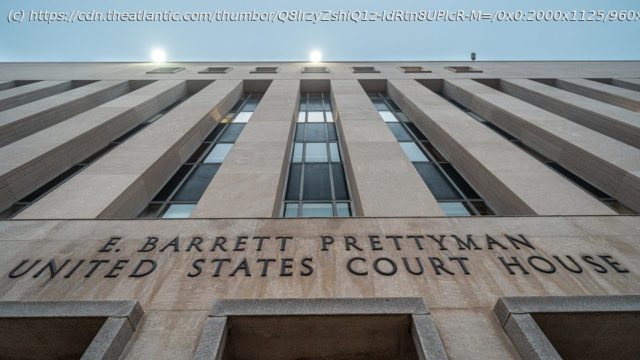Grand juries are not delivering the indictments that the Trump administration is asking for—and that may just be the start of a massive legal failure.
It’s rare for grand juries to refuse to indict. It’s even rarer for grand juries to refuse to indict multiple times in a single month—in significant part because prosecutors usually know better than to present shaky cases that might not gain jurors’ approval.
But Donald Trump’s desire to crack down on crime in Washington, D.C., seems to have come at the cost of that good judgment. Over the past month, federal prosecutors in D.C. have failed at least five times to persuade a grand jury to indict a D.C. resident for allegedly attacking federal law enforcement. These are not the only embarrassments suffered recently by federal prosecutors in the District, and judges have begun to lose their patience over missteps and sloppy cases. Despite the president’s promise to “take our capital back,” his law-enforcement surge is struggling in court.
The most recent rebuke by a grand jury involves the case of Alvin Summers, who allegedly scuffled with a U.S. Park Police officer after driving his car onto the Mall. Before that came a grand jury’s refusal to indict Sean Charles Dunn, the man now memorialized as “Sandwich Guy,” who hurled a salami sub at a Customs and Border Protection agent early in Trump’s federal deployment across the capital. The three grand-jury refusals before that all came in a single case: that of Sidney Lori Reid, whom prosecutors charged with a felony—potentially punishable by eight years in prison—over a tangle with FBI and ICE agents while Reid was protesting an immigration arrest. The agents pushed Reid up against a wall, they said, and the resulting scuffle produced a few scrapes to an FBI agent’s hand.
Trump formally announced his crackdown on August 11, claiming an emergency need to put an end to violent crime that was in fact already at a 30-year low. In the intervening weeks, federal law-enforcement officers from a range of agencies have patrolled the city’s streets alongside the National Guard and the Metropolitan Police Department, itself newly under presidential direction. The White House has produced some impressive-sounding statistics to justify the surge, pointing to more than 1,000 arrests since early August. The U.S. Attorney’s Office for the District of Columbia, meanwhile, is filing cases in federal court at a rapid clip. Whereas the office would normally submit a case or so daily, last week it filed 14 in a single day—a rate comparable to the early January 6 prosecutions, when prosecutors were charging rioters by the dozen. According to CNN, prosecutors are filing about 100 cases a day in D.C. Superior Court, roughly double what the local court sees in normal times.
The strength of these cases, however, is a different question. Summers, Dunn, and Reid are three of the almost 20 people charged with “assaulting, resisting, or impeding” a federal officer in the course of the D.C. deployment. The charge can be a misdemeanor, but in most—and possibly all—of the cases filed since early August, prosecutors have pursued a felony instead.





